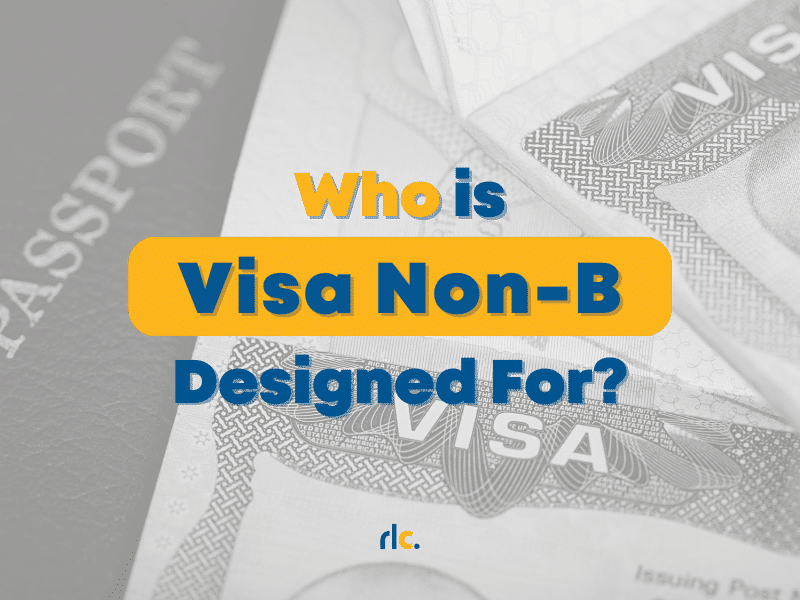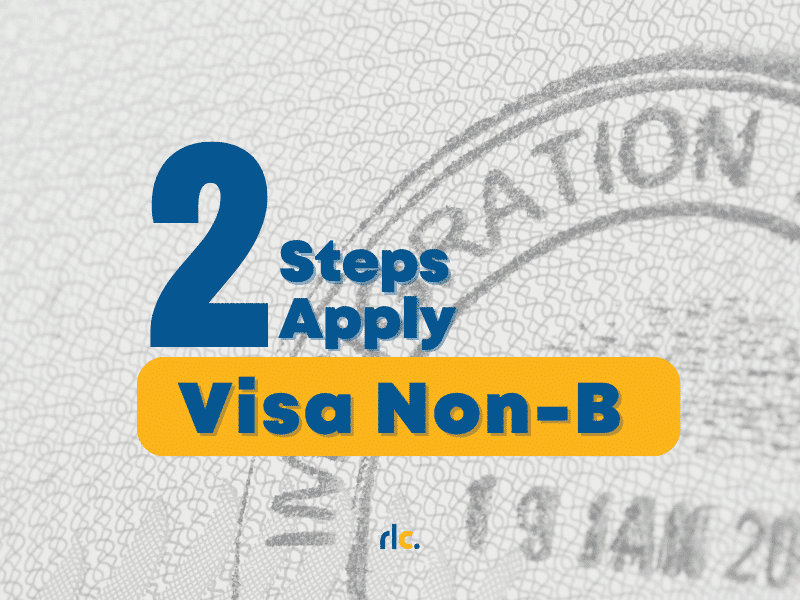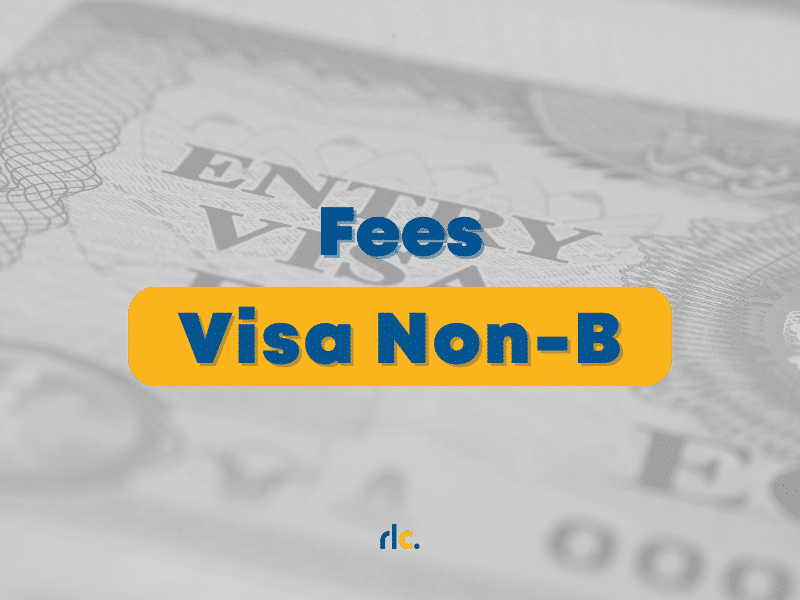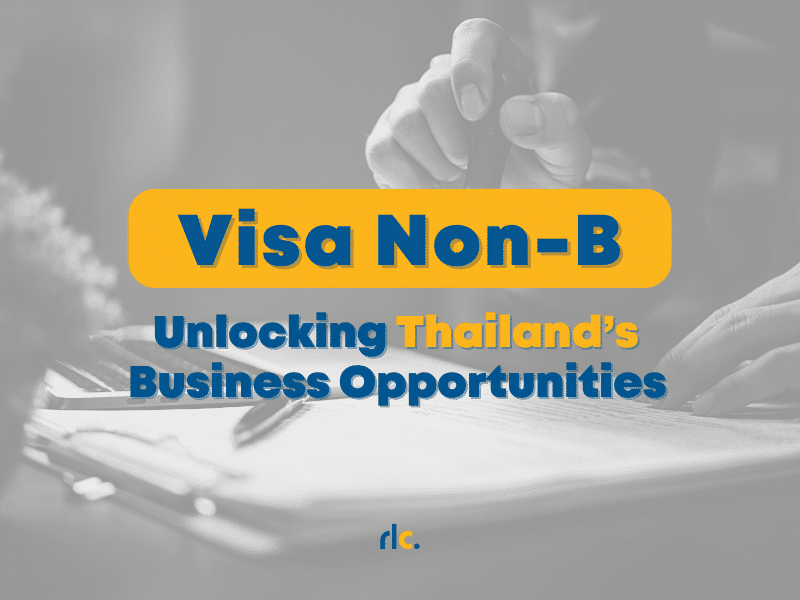Currently, Thailand visa applications can be divided into seven main categories: visas for long-term residents (Long Stay O-A , O-X), tourist visas, visas for travelers passing through the kingdom or visas for connecting flights (Transit Visa), courtesy visas (Courtesy Visa), official duty visas (Official Visa), diplomatic visas (Diplomatic Visa), and temporary residence visas (Non-Immigrant Visa). Each type of visa serves a different purpose, depending on the need to travel to that country. For example, if you want to travel for tourism, you can choose to apply for a tourist visa.
And for expat who wish to travel to Thailand for work, attend meetings, or conduct temporary business over a certain period of time, they must apply for a Type B Non-Immigrant Visa for work, business, or meetings, also known as Thailand visa NON-IMMIGRANT “B”, in order to legally stay temporarily in Thailand. They can submit the necessary documents to apply for the visa to an authorized agency for processing business visas, or a legally compliant visa processing company, with details as follows.
Getting to Know the NON-IMMIGRANT “B” Visa or Non-B Visa
Firstly, let’s understand what a NON-IMMIGRANT “B” visa, or more commonly known as a Non-B visa, is, so you can correctly choose the type of visa that aligns with your purpose. The Thailand visa NON-IMMIGRANT “B” visa is a Type B temporary residence visa issued to expat who intend to travel to Thailand for work, business, or to attend meetings within Thailand. It allows the holder to stay in Thailand for no more than 90 days at a time, and it can be renewed for 1 year before the visa expires, 30 days in advance.
For expat wishing to work in Thailand, besides the Non-B visa, a work permit, also known as a Work Permit, is equally necessary. Expat must use both of these documents together in order to work, conduct business, or carry out other transactions in Thailand legally according to the law.
Related Content: From Expat to Employee: A Guide to Getting a Work Permit in Thailand
Who is the Non-B Visa in Thailand Designed For?”
Now let’s see who needs to use this type of visa. The Department of Consular Affairs, Ministry of Foreign Affairs, has stipulated that expat who want to apply for a NON-IMMIGRANT “B” visa must have one of the following qualifications or purposes:
-
- Performing official duties (F)
- Conducting or doing business and working (B)
- Investing with the approval of the relevant ministry (IM)
- Investing or other activities under the investment promotion laws (IB)
- Studying, conducting research, and receiving various forms of training (ED)
- Performing media duties (M)
- Disseminating religion with approval from the Ministry of Religious Affairs, Ministry of Education (R)
- Conducting scientific research or training in research institutions or educational institutions in the Kingdom (RS)
- Performing skilled labor duties (EX)
In addition, you can also apply for a NON-IMMIGRANT “B” visa for other purposes (O), such as:
-
- Coming to live in the end of life as an elderly person
- Coming as a couple or witness for a case consideration
- Performing duties or tasks in the family of a foreigner who temporarily comes to perform diplomatic, consular or other duties as a father, mother, spouse or child who is dependent and part of the household of the person.
- Performing duties as a private servant traveling from abroad to work at the residence of a person in a diplomatic representative or a person with equivalent privileges to a person in a diplomatic position under agreements made by the Thai government with foreign governments, organizations or international organizations.
- Providing or receiving care from Thai nationals or persons domiciled in the Kingdom as a father, mother, spouse or child who is dependent and part of the household of the person.
- Serving the state enterprise or public charity organization
- Coming to the Kingdom of a person who once had Thai nationality to visit relatives or request to come back to live in the Kingdom
- Coming to the Kingdom for medical treatment
- Coming to the Kingdom to be a sports trainer as required by the government
The specific criteria can vary, and it is always recommended to consult with a legal advisor or the relevant authorities to understand the specific criteria and process.

2 Steps to Apply for a Non-B Visa in Thailand
1.From abroad
You can apply for a NON-IMMIGRANT “B” visa at a Thai consulate in your country of residence. The required documents may vary depending on the country. You can inquire about the preliminary information from the Thai consulate in your country.
There are two types of non-immigrant “B” visa: Single Entry and Multiple Entry, depending on the purpose of visiting Thailand:
- Single-Entry: The visa is valid for 3 months and can be used for a stay in Thailand of up to 90 days per visit. The applicant must have at least 20,000 baht in cash when entering Thailand.
- Multiple-Entry: The visa is valid for 12 months and can be used for a stay in Thailand of up to 90 days per visit. The applicant must have at least 40,000 baht per family when entering Thailand.
Document Required
The documents needed to apply for a Non-B visa to Thailand can be found at https://consular.mfa.go.th/
2.Changing visa in Thailand
If you are in Thailand with a Tourist or 30-day visa and want to change to a NON-IMMIGRANT “B” visa, you can do so by contacting the Immigration Bureau to proceed with changing your visa type.
Document Required
The documents required to change the type of visa stamp to a Non-B visa in Thailand are as follows:
- Form TM.86 for changing visa type or TM.87 for those who wish to extend their visa
- Passport or equivalent document valid for no less than 6 months
- 2 photos of 2 ½ inch size (4 x 6 cm), taken no more than 6 months ago, without wearing a hat and dark glasses
- You can find the details of the necessary documents to change from a Tourist or 30-day visa to a Non-B visa at the Immigration website.
Visa extension
For those holding a NON-IMMIGRANT “B” visa that is about to expire, you can extend your visa at the Immigration Bureau as well.
Document Required
The documents required to extend a Non-B visa in Thailand can be found at the Immigration website.
Understanding the Qualifications and Requirements for a Non-B Visa in Thailand
Let’s see what the basic qualifications for applying for a Non-B visa are. The basic qualification is that you must be a foreigner intending to work in Thailand for a short period. Other basic qualifications include:
- Must have a work permit for expat (Work Permit) or a WP 3, a substitute work permit for expat
- Must have a salary as prescribed by law
- The employing company must have a registered and paid-up capital of not less than 2 million baht per foreigner, and there must also be a ratio of the number of expat to Thai employees of 1 to 4.

Exploring the Fees Associated with Non-B Visas in Thailand
1.Application from outside of Thailand
The fee for a Non-B Visa can be divided according to the type. The fee for a Non-B visa, single entry, is 2,000 Baht, while the fee for a Non-B visa, multiple entry, is 5,000 Baht.
2.Changing visas within Thailand
The fee for changing a visa from Tourist or Transit (TR) to Non-B is 2,000 Baht.
3.Renewal
The fee for renewing a Non-B visa is 1,900 Baht.
In addition to these visa fees, if you need to travel outside the country and return, you must also apply for a Re-Entry visa. This is so that when you leave the country and return to Thailand, your Non-B visa remains valid. The fee for a Multiple Re-Entry visa (for multiple entries-exits) is 3,800 Baht, and 1,000 Baht for a Single Re-Entry visa (for one entry-exit).
If you do not apply for a Re-Entry visa when you leave the country and return to Thailand, your Non-B visa will immediately become invalid and you will have to start the visa application process again
Summary
For expat who wish to work in Thailand, the first step is to obtain a Non-B visa. This serves as a permit to legally work in Thailand. This can be obtained in two ways mentioned earlier, either by applying from outside Thailand or entering Thailand on a tourist or transit visa and then changing it to a Non-B visa within the country. One important thing to note is that once you have a visa, we recommend applying for a Multiple Re-Entry visa for use in case the foreigner needs to travel in and out of Thailand. The Multiple Re-Entry visa will prevent the Non-B visa from being invalidated in such cases.
In addition to applying for a Non-B visa, expat working in Thailand must also have a document known as a Work Permit in Thailand. Only with these two can they work, conduct business, or carry out various transactions legally within Thailand. Details and additional information can be found on the website of the Department of Consular Affairs, Ministry of Foreign Affairs, https://consular.mfa.go.th/ or choose to use the services of a company or agency that legally processes visas, which can save time and facilitate your business. At RLC Outsourcing, we offer various visa services, including business visa processing or Non-B visas.

SEO Specialist and Client Success at RLC Outsourcing


